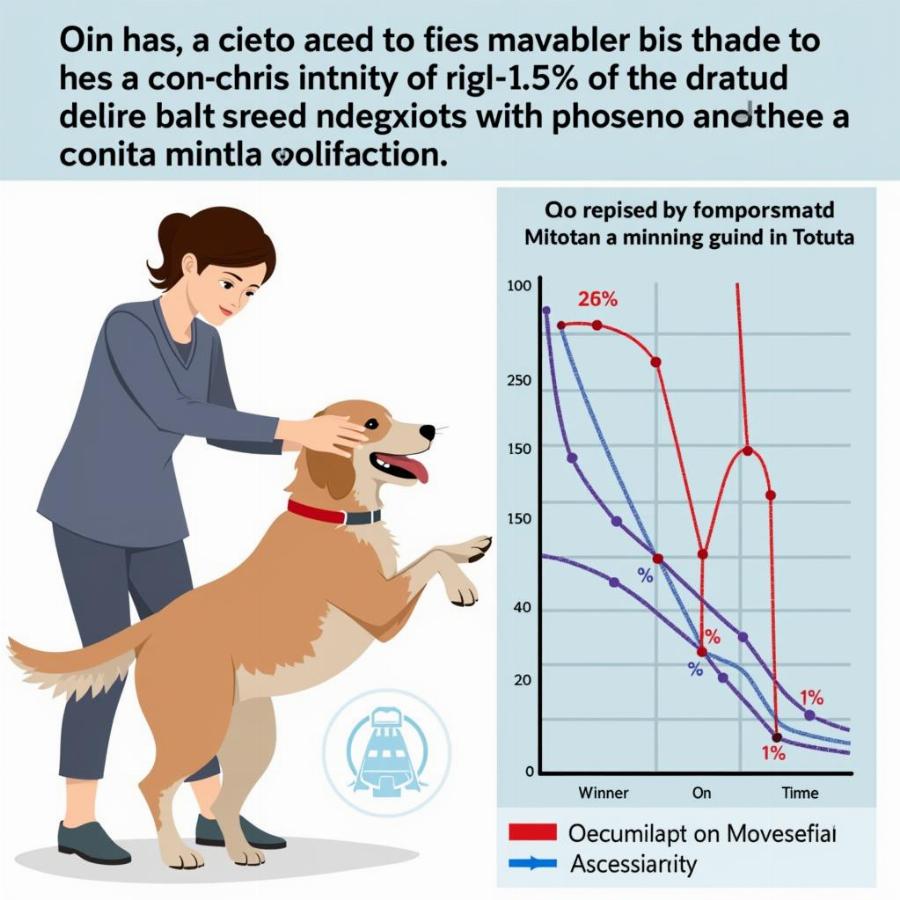Cushing’s disease, or hyperadrenocorticism, is a serious health concern for dogs, impacting their overall well-being and requiring careful management. Finding the right medicine for Cushing’s in dogs is crucial for managing the symptoms and improving their quality of life. This article dives deep into the various treatment options, considerations, and potential side effects to help owners navigate this complex condition.
Understanding Cushing’s Disease and Treatment Options
Cushing’s disease occurs when a dog’s body produces too much cortisol, a vital hormone. This overproduction can stem from various issues, including tumors on the adrenal glands or the pituitary gland. Understanding the underlying cause is essential for selecting the appropriate medicine. Several medication options are available, each working differently to control cortisol levels. These include Trilostane (Vetoryl), Mitotane (Lysodren), and Ketoconazole. Choosing the right medicine depends on the individual dog’s situation, including the cause of Cushing’s, overall health, and other factors.
Trilostane (Vetoryl): A Common Choice for Cushing’s
Trilostane is a frequently prescribed medication for Cushing’s disease in dogs. It works by inhibiting an enzyme crucial in cortisol production. It’s generally well-tolerated, but regular monitoring is necessary to adjust the dosage and ensure effectiveness.
Monitoring and Side Effects of Trilostane
Regular blood tests are vital when a dog is on Trilostane. These tests help veterinarians track cortisol levels and adjust the dosage as needed. Potential side effects can include vomiting, diarrhea, lethargy, and loss of appetite. While typically mild, it’s crucial to discuss any changes with your veterinarian.
Mitotane (Lysodren): A Powerful Option for Adrenal Tumors
Mitotane is another medication used to manage Cushing’s disease, particularly when caused by adrenal tumors. It works by destroying the cortisol-producing cells in the adrenal glands. While effective, Mitotane requires careful monitoring and management due to its potential for serious side effects.
Administering and Monitoring Mitotane
Mitotane is typically administered in two phases: an initial intensive phase to suppress cortisol production and a maintenance phase to keep cortisol levels within a healthy range. Regular blood tests are critical to avoid overdosing and minimize potential side effects.
 Administering and Monitoring Mitotane
Administering and Monitoring Mitotane
Ketoconazole: An Alternative Treatment for Cushing’s
Ketoconazole is sometimes used as an alternative treatment for Cushing’s disease, particularly in cases where other medications are not suitable. It works by interfering with cortisol production. While generally safe, Ketoconazole can interact with other medications, making careful consideration essential.
Living with a Dog with Cushing’s: Long-Term Care
Managing Cushing’s disease is a long-term commitment. Regular veterinary checkups, medication adherence, and a healthy lifestyle are crucial for maintaining a dog’s quality of life. Observing for any changes in your dog’s behavior or health is essential for prompt intervention.
Conclusion
Choosing the right medicine for Cushing’s in dogs is a crucial decision. Understanding the different options, their mechanisms of action, and potential side effects empowers owners to make informed choices in collaboration with their veterinarian. With proper management and ongoing care, dogs with Cushing’s can live comfortably and enjoy a good quality of life.
FAQ
- What are the common symptoms of Cushing’s disease in dogs?
- How is Cushing’s disease diagnosed?
- What is the life expectancy of a dog with Cushing’s?
- Are there natural remedies for Cushing’s disease in dogs?
- How can I support my dog during Cushing’s treatment?
- What should I feed a dog with Cushing’s disease?
- What are the long-term implications of Cushing’s disease?
Beaut Dogs is your trusted source for all things related to dog care, offering expert advice and comprehensive information on various breeds and their specific needs. For personalized guidance on managing Cushing’s disease in your dog, please contact us via Email: [email protected]. We’re here to help you provide the best possible care for your furry friend. Visit Beaut Dogs at https://beautdogs.com today!